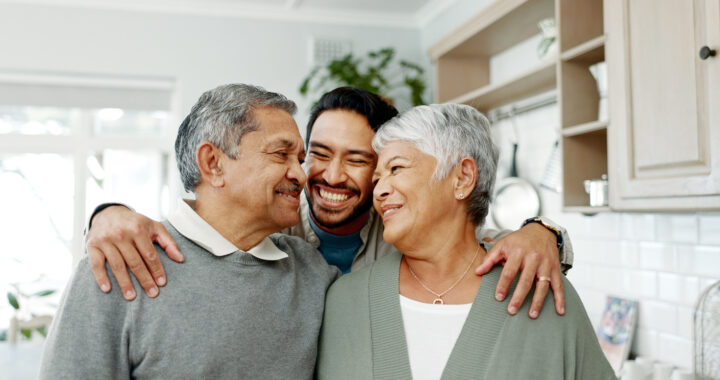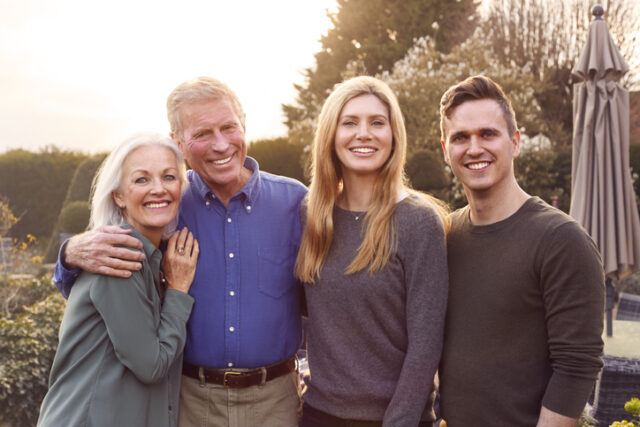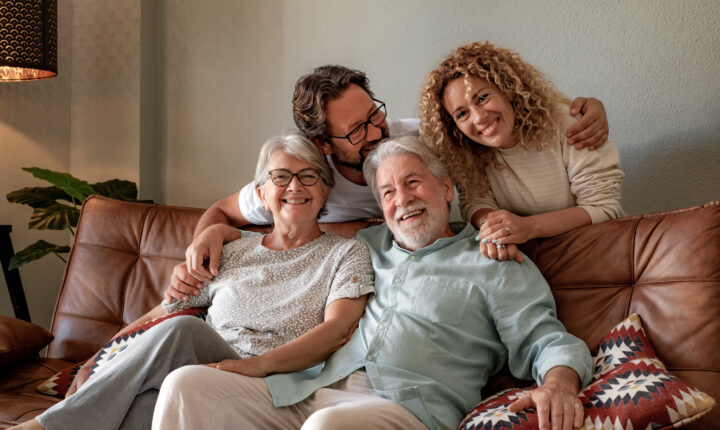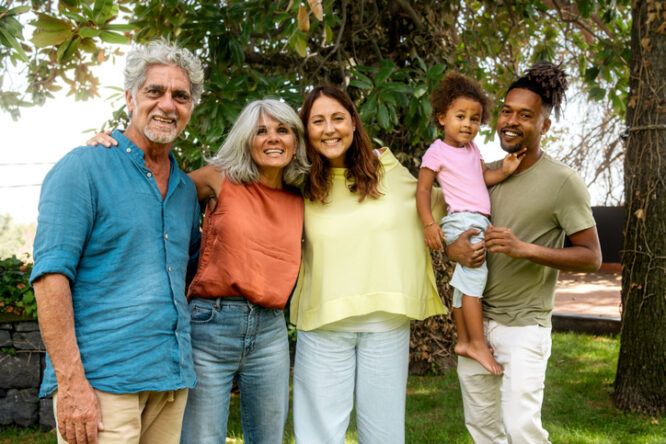Something changes when you hit your thirties—not just in your career or friendships, but in the way you see your parents.

Suddenly, the roles aren’t so clear-cut anymore. You start noticing things you missed in your twenties, questioning old patterns, and seeing them more as people than as the authority figures they once were. Whether it brings you closer, creates more distance, or just adds a new layer of awkward, here are some of the most surprising ways your relationship with your parents starts to become totally different once you enter your fourth decade of life.
1. You stop expecting them to change, and that’s weirdly freeing.

In your twenties, you might’ve still hoped they’d apologise, evolve, or suddenly understand you on a deeper level. But at some point, you realise they probably won’t, and you stop needing them to. That acceptance doesn’t mean you like everything about them, but it lets you breathe a bit easier. You’re no longer stuck waiting for a different version of them to show up. You’re just dealing with who they are now, flaws and all.
2. You start parenting yourself more.

It hits you one day: you’re handling your own life in ways they once did for you. You’re setting your own bedtime, booking your own dentist appointments, figuring out your emotional mess without needing them to guide it. That change can feel empowering, but also bittersweet. There’s something comforting about having someone who’ll always step in, and realising that’s not really the dynamic anymore is a quiet kind of growing up.
3. Their opinions matter, but not as much as they used to.

You might still care what they think, but you’re not living or dying by their approval anymore. Whether it’s about your job, your relationship, or how you raise your kids—you trust yourself more than you used to. It doesn’t mean their input isn’t valued, but it’s no longer gospel. You’ve got your own compass now, and even if they don’t fully get your choices, you’re learning to stand by them anyway.
4. You see their humanity way more clearly.

Once you’ve dealt with adult stress—bills, relationships, burnout—you start looking at them differently. You realise they weren’t always confident or composed either. They were just figuring it out, same as you. That perspective can soften the frustration you used to feel. You might not excuse everything, but you start understanding that they were human the whole time—not superheroes, not villains, just people trying their best with what they knew.
5. You start setting boundaries, and they don’t always love it.

It’s one thing to say “I need space” or “I can’t talk about this right now” as a teenager. It’s another to say it as an adult who actually means it. Boundaries hit different in your thirties, and so does the pushback. They might guilt-trip you, act confused, or pretend not to notice the line you’re drawing. But standing firm feels good. You’re not being rebellious; you’re being responsible for your own wellbeing.
6. Conversations get a little more real.

You stop talking just about surface stuff and start dipping into deeper territory—things like regrets, ageing, fears, and even past family dynamics. Sometimes it happens by accident, and sometimes it’s intentional.
Either way, those realer conversations can be grounding. They give you new insight into who your parents are beyond the roles they’ve always played. They remind you that connection doesn’t always come from comfort. It comes from honesty.
7. You realise you don’t owe them constant access.
 Source: Pexels
Source: Pexels Just because they’re your parents doesn’t mean they get a front-row seat to every part of your life. You’re allowed to decide what you share, how often you talk, and what topics are off-limits. That realisation can feel like a relief, especially if you’ve felt emotionally overexposed in the past. You’re still showing up with love, but now on your own terms.
8. Holidays and visits feel a bit more like negotiations.

In your twenties, you might’ve just gone along with tradition. Now, you’ve got your own routines, your own schedule, maybe even your own family, and suddenly, coordinating a simple holiday starts to feel like planning a summit.
You’re not trying to be difficult. You just don’t want to spend every Christmas doing what’s always been done. That tension between your life and theirs starts to show up more, and you learn how to navigate it with a bit of tact (and sometimes a glass of wine).
9. You notice the generational stuff more clearly.

You start spotting the differences in how you view work, relationships, parenting, and emotional expression, and it’s not just about age. It’s about culture, timing, and the way they were raised too. Sometimes it brings understanding, and sometimes it highlights the gap. Either way, it gives you language for the things that never quite made sense growing up, and that alone can be healing.
10. You become the one they rely on more.

At some point, the script starts to flip. They call you when they need help with technology, emotional support, or navigating something new. You’re not the child in the dynamic anymore—at least, not in the same way. The role reversal can feel strange, especially if you’re still figuring out your own stuff. But there’s also something quietly meaningful about being the one who shows up, not because you have to, but because you want to.
11. You give more grace than you expected to.

Things you once held tightly—the grudges, the misunderstandings, the things they didn’t do—start to loosen. Not because they weren’t painful, but because your own life experience gives you new perspective. You’re not excusing the past, but you’re starting to realise how much they may have carried. That can change the dynamic from blame to something more like compassion, not always, but sometimes.
12. You stop trying to prove your adulthood.

There comes a point when you don’t need to show them how independent, successful, or “grown up” you are. You just are. And whether they see it or not doesn’t shake you the way it used to. Letting go of that performative pressure frees up space for something more honest. You’re not trying to impress or rebel; you’re just living your life. They can either meet you in that space, or not.
13. You might feel lonelier in the relationship than you expected.

Even with more understanding, maturity, and boundaries, you might still wish the connection felt deeper. That longing for closeness doesn’t always disappear with age. It just gets quieter and more complicated.
While you may not get the version of the relationship you wanted, naming that grief can help you hold it with more gentleness. You stop waiting for the perfect parent-child dynamic and start finding peace in the one you’ve got, or in the one you’ve chosen to create elsewhere.
14. You realise the relationship is always evolving, even now.

Just when you think it’s settled, something shifts again. They retire, you have a baby, someone gets sick, or an old story resurfaces. The relationship keeps changing, and so do you. It’s not about arriving at some perfect place. It’s about staying open to what’s real now, and finding ways to hold the past, the present, and whatever’s ahead with a little more honesty and care than you did before.




